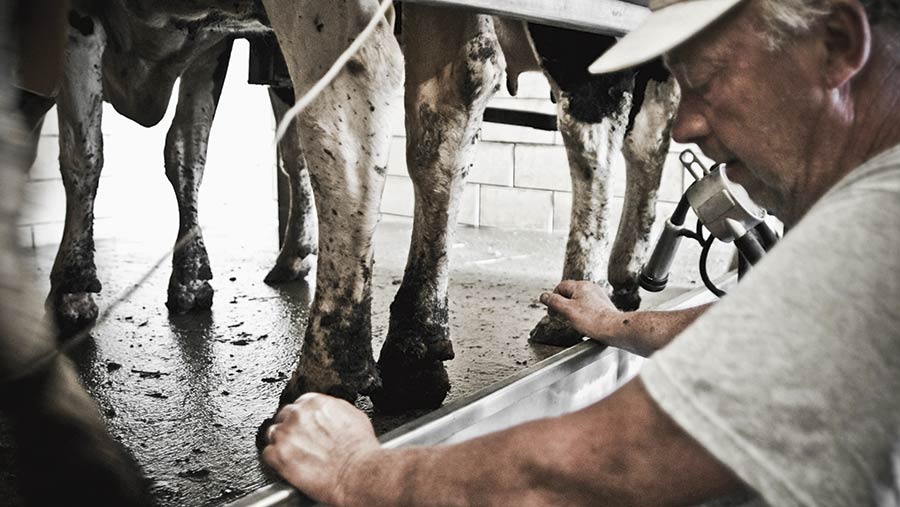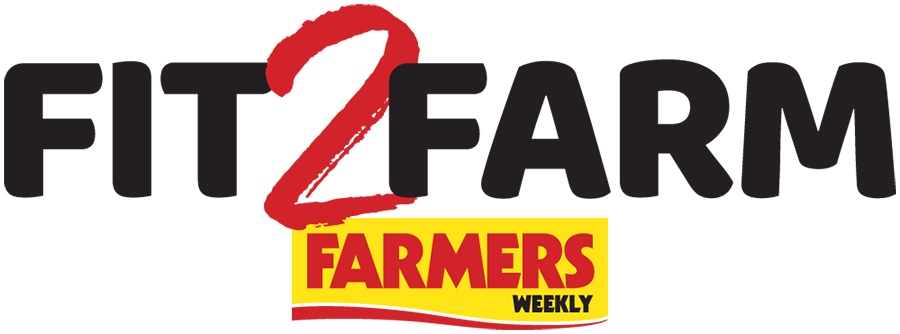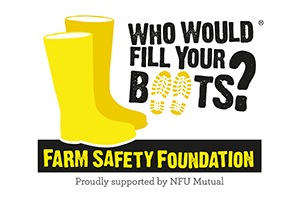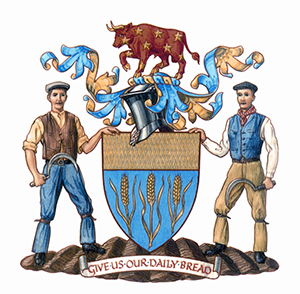Simple changes can help put sleep problems to bed
 © Aurora Photos/Alamy
© Aurora Photos/Alamy Farmers and farm workers are building up a “sleep debt” because they work long hours and are unable to switch off when they do get to bed, a Farmers Weekly survey suggests.
Getting the right amount of sleep is a major challenge for farmers. More than two-thirds of respondents (68%) said they didn’t always get enough sleep, with more than a quarter (28%) saying they had difficulty sleeping all or most of the time.
See also: Hard work and long hours take toll on farmers
The survey findings were published as part of Farmers Weekly‘s Fit2Farm campaign to highlight the importance of healthy farmers to healthy farm businesses. The study was carried out in association with Bayer and Isuzu.
Survey analyst Heather Macleod, who conducted the study on behalf of the magazine, said: “Respondents are building a ‘sleep debt’ by sleeping around 6.5 hours a night but needing a full eight hours to get a good night’s rest.”
Long working days
Some farmers aren’t getting enough sleep because the nature of the job means they get up early and go to bed late. In other words, they work so hard there simply aren’t enough hours in the day. But other survey respondents said they suffered from insomnia.
There is no standard definition of what constitutes normal sleep, according to the National Institute for Health and Care Excellence (NICE) – the public body which provides national guidance and advice to improve health and social care.
Insomnia comes in many forms, it says. As well as trouble getting to sleep, it can include difficulty staying asleep, early wakening or poor sleep quality, resulting in impaired daytime functioning such as poor concentration, mood disturbance and daytime tiredness.
Although many people have difficulty sleeping from time to time, persistent insomniacs should visit their GP. A sleep diary can help identify how much someone actually sleeps each night, and any factors that may exacerbate insomnia.
NICE says the diary should be kept for at least two weeks. A good bedtime routine can also make people more aware of any behavioural, environmental and temporal factors that may be detrimental or beneficial to sleep, it adds.
How to sleep
Farmers who said they had trouble sleeping try to nod off by listening to music (30%), having a hot drink (26%) or drinking alcohol (22%). A further 12% have taken medication – whether over the counter or prescribed – but there are other ways too (see box).
Some 52% of all respondents said they enjoyed a drink – although not all to get to sleep. On average, drinkers consume 13 units of alcohol a week. Some admitted to drinking much more than that although there are also many teetotallers.
Ms Macleod said: “Where people are drinking heavily, they are drinking really heavily. It suggests people are feeling really stressed and haven’t got the mechanisms for dealing with it – they haven’t got the support they need.”
Stress, long working hours and lack of sleep are all contributors to farm accidents. One in 10 survey respondents said they had been injured in a farm accident in the past year, with a further 6% saying they had been involved in an accident but had escaped unhurt.
Knock-on effects
Earlier this month, the Health and Safety Executive identified stress, depression and anxiety as some the main causes of work-related ill health. The overall illness rate for agricultural workers was 46% higher than the industry average, it said.
The Farm Safety Partnership, a group of industry organisations working to reduce farm fatalities, is also working to promote the conversation about mental and physical health so farmers can keep their minds as well as their bodies safe in the workplace.
The FSP’s chairman. NFU vice-president Stuart Roberts, says: “We all know that agriculture has a poor track record when it comes to physical injuries in the workplace, and the partnership is working with the industry to reverse this. But what we have often overlooked is our mental wellbeing.”
The industry needs to “open up” about mental health, Mr Roberts believes. The non-fatal injury rate for agricultural workers is 105% higher than the industry average. The cost of ill health and injury in agriculture is estimated at £293m a year.
“We need to start treating mental wellbeing as we would a physical injury. If you’ve pulled a muscle you rest it, if you have back pain you go and see a doctor. But first we must be able to recognise when there is a problem and we must be able to talk about it.”
Tips for a good night’s sleep
A warm milk drink was among the favourite night-time tipples when we asked Farmers Weekly readers how they got to sleep. Here is a selection of the responses:
Take a favourite walk – in your mind. Take it very slowly, picturing every footstep, sound, smell. I usually can’t get beyond 300 yards.
Charles Macdowell
I have nothing to eat at least three hours before sleep – and a nighttime infusion of camomile or warm milk.
Veronique Heyes
I listen to the BBC World Service using earbud headphones on a timer that switches off after 30 minutes. It works every time.
Vicki Hird
I don’t drink tea after 6pm and try not to eat for a while before bed – although during harvest it’s not ideal. I like a nice cold bed and go to bed stress-free, or at least not wound up.
Mark Turner
Case study: Yoga classes help ensure restful night
Suffolk farmer Jeremy Squirrell says his sleep has improved since taking up yoga classes – and he is already feeling the benefits.
Mr Squirrell is half-way through an eight-week Fit & Farming course run by qualified dietician Anna Groom, who runs AEG Nutrition. He says he is already sleeping better thanks to the course, which helps local farmers improve their health by making simple lifestyle changes.
“Doing yoga has made me feel more relaxed and helps relieve tension,” says Jeremy. “My general wellness is a lot better and I’m enjoying life much more.”
Farmers on the health improvement programme meet weekly for a weigh-in, to discuss nutrition and take part in yoga and pilates classes. The course provides bespoke advice to participants to improve their health and wellbeing.
Ms Groom, whose family farms at Edwardstone, near Sudbury, started running the courses for farmers last year. She says that after realising what they can achieve, course participants are often open to other new ideas and ready to take on new challenges.
Important to switch off, says Fit2Farm ambassador
Welsh rugby international and Fit2Farm ambassador Dan Lydiate says he can struggle to get to sleep the night after a big game.
The 30-year-old Ospreys flanker, whose family runs a sheep and beef farm near Llandrindod Wells, has teamed up with Farmers Weekly to highlight the importance of health and wellbeing among farmers and farm workers.
“When I first got called up to the national team, I would do my day’s training, go home and then I would be awake until the early hours of the morning thinking about the calls and things like that, so I would be going to the next training session absolutely shattered.”
These days, Dan says he often drives back to the family farm after a match and uses the time in the car to wind down. He also talks to family and friends – about farming as well as rugby. “It is really important to switch off – and it is important to find the right balance,” he explains.

Farmers Weekly has launched a new campaign to help farmers discover how they can improve their own health, wellbeing and work-life balance.
It’s all about making sure you are in top shape, physically and mentally to run your farm business.
We’ve been joined by business and charities to raise awareness for this campaign. Read about our sponsors below.
Read all of the articles in the Fit2Farm series
Fit2Farm: How farmers can improve their mobility to avoid injury
Fit2Farm: How a farmer’s wife helps others in tough times
Fit2Farm: Why farmers need to eat better and exercise more
Fit2farm: Wellbeing guru shares top health tips for farmers
Fit2Farm: How a better work-life balance benefits farm
Fit2Farm: Hard work and long hours take toll on farmers
Fit2Farm: FW campaign to improve farmers’ health
Video: Rugby star signs up to be Fit2Farm ambassador
Advice on fixing relationship problems for farming couples
Our sponsors
Bayer
 Your wellbeing is just as important to your farm’s future as looking after your land, crops and animals. Looking after yourself helps you be more productive and confidently face new challenges.
Your wellbeing is just as important to your farm’s future as looking after your land, crops and animals. Looking after yourself helps you be more productive and confidently face new challenges.
At Bayer, we have health and nutrition at our core, so we are delighted to support Fit2Farm.
Find out more at cropscience.bayer.co.uk/wellbeing
Isuzu

Isuzu are proud to support UK farmers of today and as the pick-up professionals we understand that having the right tools and equipment are vital elements to making the working day go that much easier.
That’s why with Isuzu, our pick-ups are strong, durable and built to go the distance, so you can focus on the job in hand.
Find out more about the Isuzu D-Max range on our website
Our charity partners
Farming Community Network

The Farming Community Network (FCN) is a voluntary organisation and charity that supports farmers and families within the farming community through difficult times.
FCN’s volunteers provide free, confidential, pastoral and practical support to anyone who seeks help, regardless of whether the issue is personal or business-related.
Helpline: 03000 111999
E-Helpline: help@fcn.org.uk
The helpline is open every day of the year from 7am to 11pm
Website: www.fcn.org.uk
Farm Safety Foundation

The Farm Safety Foundation is an award-winning charity raising awareness of farm safety among the next generation of farmers.
Through training and campaigns such as Farm Safety Week and Mind Your Head, the Foundation tackles the stigma around risk-taking and poor mental health, ensuring that that next generation of farmers is equipped with specific skills to live well and farm well.
Website: www.yellowwellies.org
Worshipful Company of Farmers

The complexity, risk and relentless uncertainty within agriculture today take a tremendous toll on all those who work in the industry; never before has resilience been so crucial.
Recognising this we are delighted to support this new initiative to promote good health and wellbeing. It’s a fresh approach and demonstrates that working together we are always stronger.
Website: farmerslivery.org.uk
